There are cases where durian growers are willing to cut young fruit, dip them in chemicals and sell them en masse to traders without caring about consumers.
This is a manifestation of the imperfection in some supply chains in Vietnam, as stated by Mr. Huynh Quang Duc, Deputy Director of the Department of Agriculture and Rural Development of Ben Tre province, at the "Forum on Developing Safe Agricultural Production Supply Chains" on September 29.
According to Mr. Duc, this approach shows that the supply chain only cares about the wholesale stage. "The chain in Thailand is very important to durian eaters, and selling to traders is enough. A sustainable chain must aim at consumers, not just stopping at distributors," he said.
Mr. Bui Van My, Deputy General Director of Saigon Agriculture Company, confided about a situation he encountered in the loose product consumption linkage. He said that when the market was favorable, the suppliers took goods from the company, but when it was not favorable, they imported less and replaced them with goods from other places at a cheaper price to provide to customers.
This type of business also exists in the fruit and vegetable supply chain, easily creating conditions for poor quality goods to infiltrate, causing consumers to lose confidence if there is an incident. Mr. My said that in reality, there are units that own VietGap certification for a very small cultivation area but the daily output sold to partners is quite large. Meanwhile, purchasing partners only know that the supplier has VietGap without thoroughly understanding their actual production capacity. "This is an unsustainable type of connection," he said.
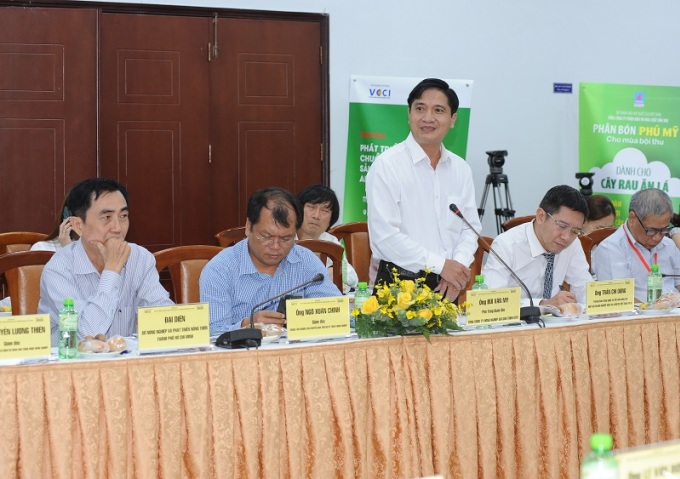
Mr. Bui Van My spoke at the forum on September 29. Photo: Business Forum
Supply chains in Vietnam are growing, but the situation of good harvests and low prices still exists. According to experts, another weakness is the inability to accurately forecast market demand to coordinate production plans. In mid-August, 14 hectares of papaya in Nghe An were refused to be purchased and then the contract was terminated, an example.
Dr. Tu Minh Thien, General Director of Pacific Service Development Company, said that the agricultural sector is currently not able to accurately calculate total market supply and demand. To calculate, there needs to be a spot, wholesale and future commodity market to determine how much production is needed.
In addition, according to experts, there are many policies to support the development of agricultural linkage chains but they are not easy to apply and sometimes counterproductive.
For example, Decree 98/2018 encourages the development of cooperation and association in production and product consumption with 100% support for consulting costs, 30% investment capital for infrastructure linkage, support for agricultural extension and vocational training.
However, it is not easy to enjoy the incentives. The common difficulty is that cooperatives find it difficult to find a competent consulting unit. To establish a partnership, they also need financial resources, technical processes, and capital, which are not easy requirements, making cooperatives confused when building projects, plans, and partnership methods.
For example, Mr. Le Van Dong, Director of the Department of Agriculture and Rural Development of Tra Vinh, said that Decree 98 stipulates the conditions for receiving support such as: agricultural products with a breeding, planting, and exploitation cycle of one year or more; minimum association period of 5 years. Enterprises find it difficult to do this because the output market of most agricultural products is unstable; prices change seasonally.
Mr. Dong said that amending and supplementing Decree 98 to make it more suitable is necessary. "In the last 5 years in the province, we have only implemented 4 projects (total cost of 178 billion VND) and 13 chains, which is still very modest," he said.
Another limitation is that the linkage policy is sometimes hindered by administrative boundaries. "Agricultural production must calculate raw material areas according to the soil properties of the land, not according to administrative boundaries. But currently, it is impossible to use the budget from one place to invest in supporting the development of raw material areas for another locality," Dr. Tu Minh Thien analyzed the difficulty.
Or as Mr. Bui Van My said, Ho Chi Minh City banned manual slaughterhouses but the surrounding provinces did not. As a result, the agents ran to the provinces to slaughter pigs and then brought them back to Ho Chi Minh City for consumption, causing the local slaughterhouses to be "unsold". "This regulation is good but localized so it is not effective. The linkage policy must be regional," he said.
In 2022, Vietnam's agricultural, forestry and fishery exports reached a record 53.2 billion USD, up 9.5% compared to 2021. Of which, agricultural products alone reached over 22 billion USD. According to Mr. Thien, the market has 5 requirements: competitive prices; regular and on-time supply; large quantity supply; good quality; food safety and hygiene.
In addition, current consumption trends are a cross-section of three factors: healthy, convenient and enjoyable. For chains to develop effectively, experts say that new models, the development of a concentrated commodity market and management leadership are needed.
Mr. Ngo Xuan Chinh, Director of the Center for Research and Transfer of Agricultural Technology Advances, Southern Institute of Agricultural Science and Technology, said that the regulations on growing area codes still have many shortcomings in terms of production area compared to reality. Therefore, it is necessary to build a new cooperative model with a welfare support fund to compensate for losses if the market is unfavorable.
Dr. Tu Minh Thien said that in the early stages of chain development, the role of the state and institutes and schools is very important in forming and maintaining members in the association, through preferential loans, technical support and markets.
Financial support will gradually decrease, leaving only technical support, trade promotion, and branding. Gradually, chains will be formed and operated autonomously, based on economic efficiency and voluntary cooperation among members.
Telecommunications
Source link



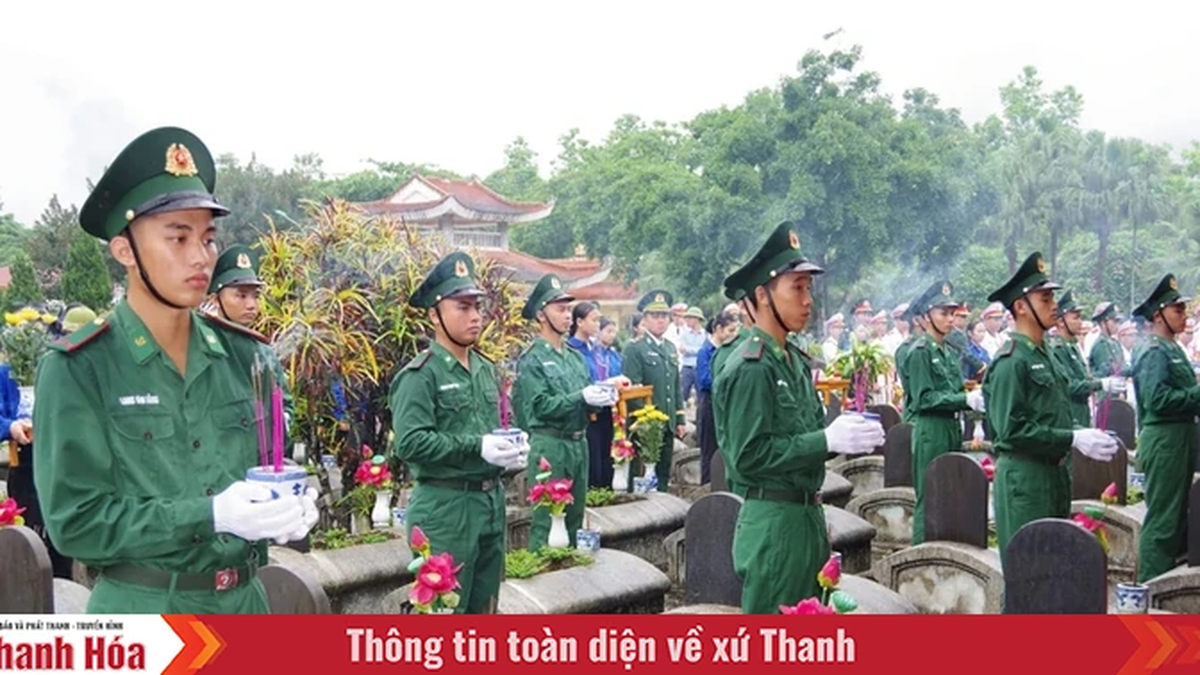

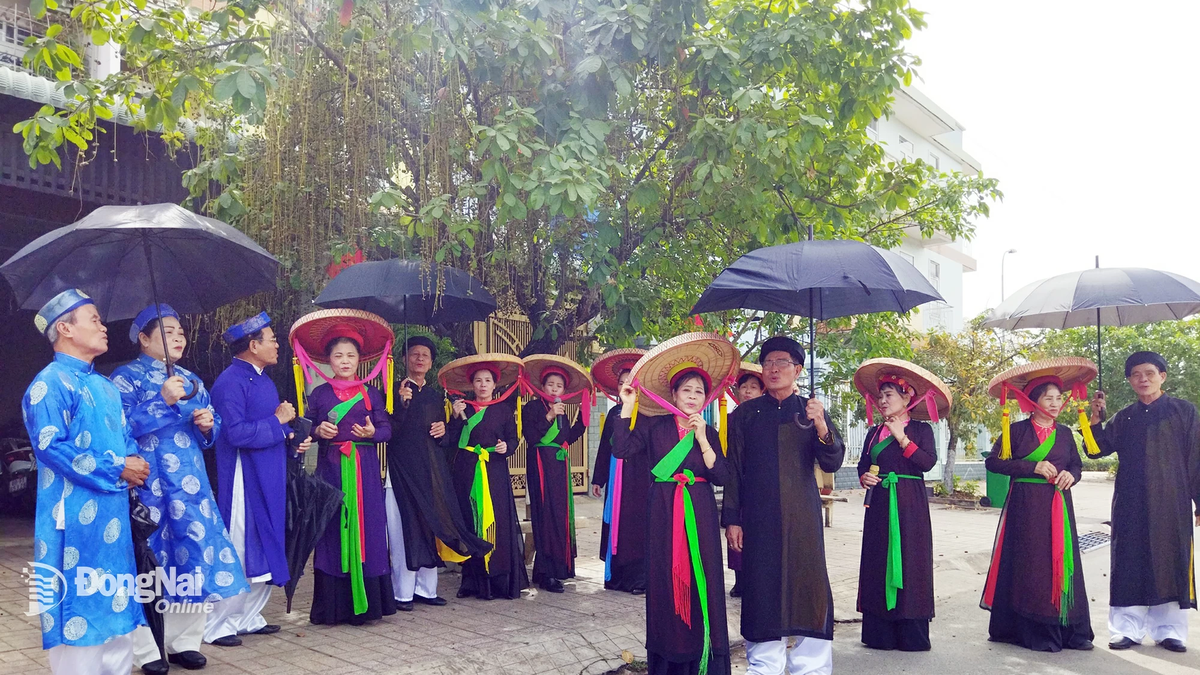
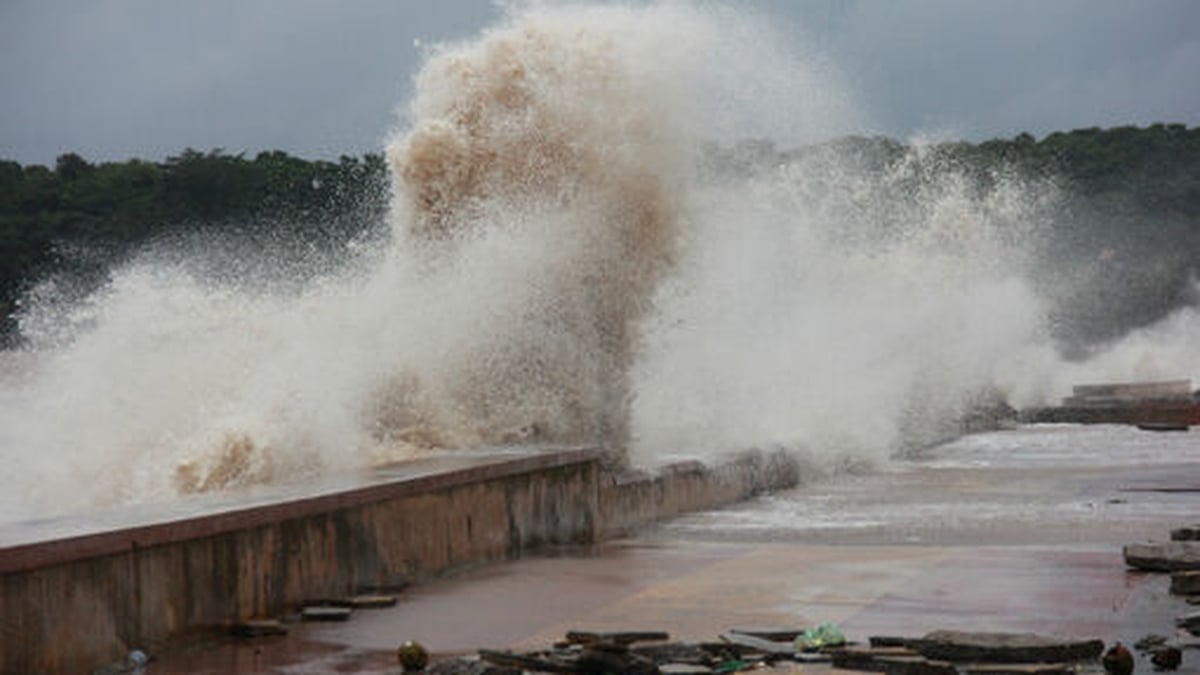



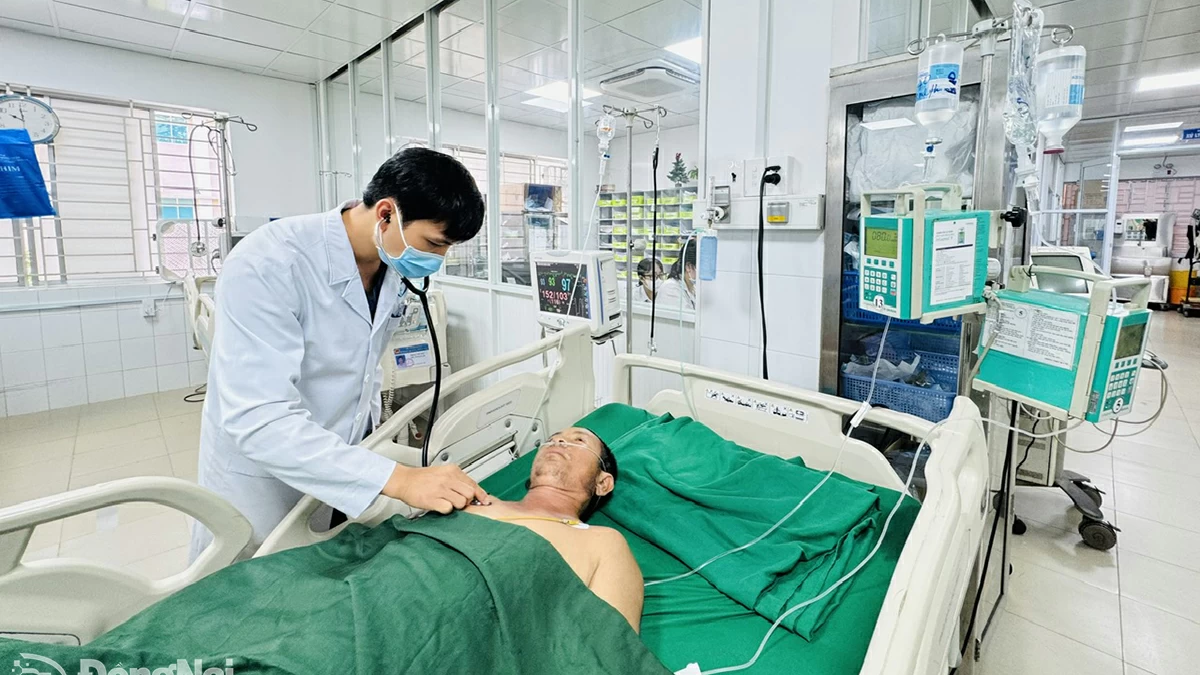
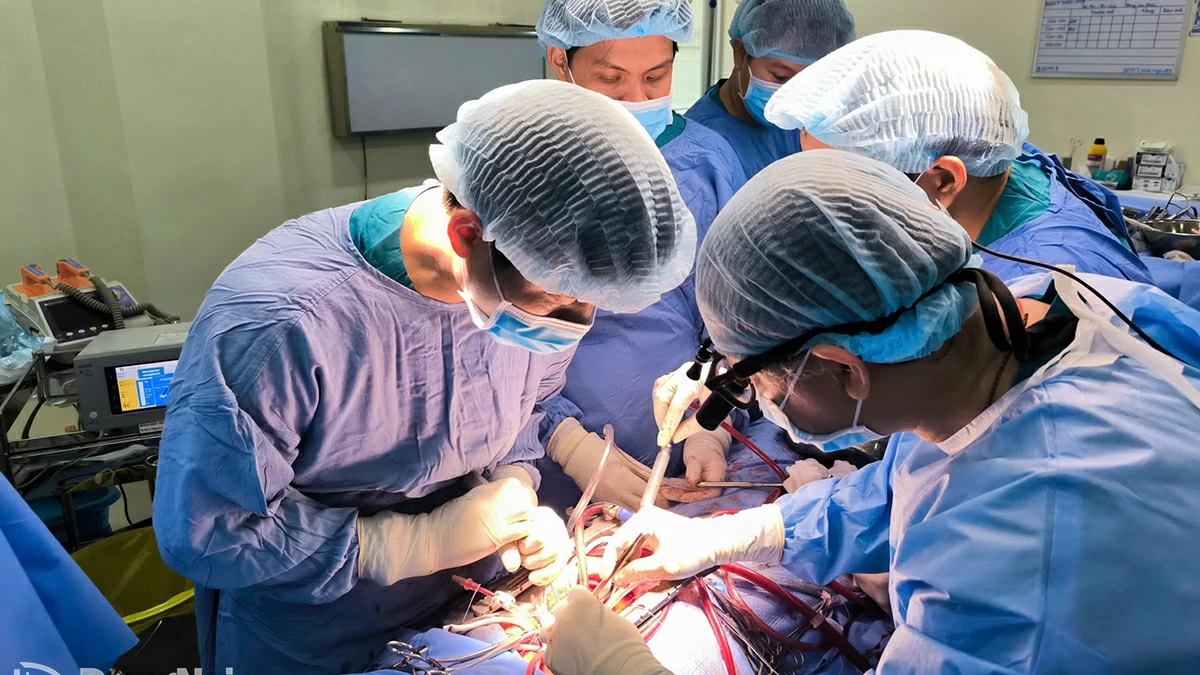

























































































Comment (0)